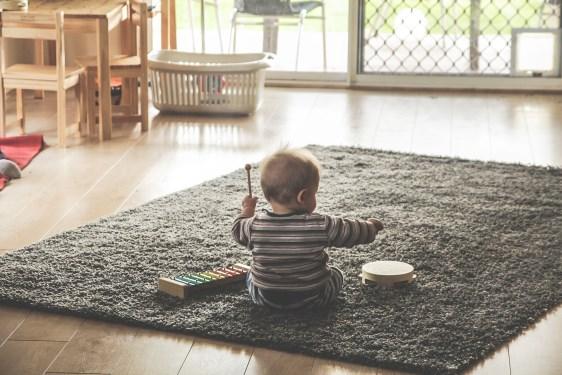
4 minute read
Latest Music Education News
Ofsted Framework changes cause concern

Teachers are worried about the idea of music deep dives
Teachers and schools across England are voicing their concerns over Ofsted’s new ‘Deep Dive’ process of subject inspection. Music is a subject that is causing particular consternation, since it is traditionally an area that primary teachers are trained less rigorously for, and therefore less confident about delivering. As one teacher memorably put it at Arts Connect’s recent Tea Party event, “If they try to do a deep dive in music at our school they’ll crack their head open on the bottom of the pool!”
The deep dive process is still very much in its test phase, but early indications suggest that subject coordinators are being asked questions such as how they ensure full curriculum coverage and progress across the school, and how they cater for SEND.
They are also carrying out joint observations with the inspector and comparing feedback, and then the teachers observed are being asked for their views on music, and about what support and CPD is available to them.
Draft Curriculum for Wales 2020
The draft curriculum for Wales due to be implemented in 2022 is now in its final stages of development, following a period of consultation.
Currently the curriculum proposals group subjects into six areas of Learning and Experience, including one around Expressive Arts, which includes art, dance, drama, film and digital media, and music. The idea is that although each of these subjects has its own discrete knowledge and skills, they are grouped together through the creative processes and transferrable skills that they have in common.
It is hoped that the Expressive Arts area of learning and experience will help learners not only to progress in the individual subjects but to gain appreciation of the cultures of the diverse communities of Wales and the wider world, as well as developing creativity, self- confidence and resilience.
Still no sign of NPME 2

Will Early Years provision be included in the new National Plan for Music Education?
The current National Plan for Music Education runs out in 2020, and plans have been afoot for a ‘refreshed’ version for some time. However, this document is yet to be released, and this is starting to cause concern to organisations working within the music education sector in terms of how to plan for next academic year.
It is a fair bet to assume that singing and whole class ensemble teaching will still form a big part of the plan, and we also expect to see a renewed emphasis on inclusion and SEND provision. There are also calls for Early Years provision to be included in the plan
However, it remains to be seen exactly which areas of the current plan remain in the refreshed version, and if any new priorities are added for 2020 onwards.
Further delay to Model Music Curriculum

The model music curriculum has been delayed again over quality issues.
In perhaps the least surprising news of 2019, the model music curriculum announced by Nick Gibb earlier in the year has been further delayed over issues around quality. Given the short timeline allocated, the limited amount of funding awarded, and the fact that the drafting organisation and many of the expert panel are not curriculum music specialists, this latest development could be regarded as inevitable.
The model curriculum is intended to be a non-statutory expansion of the national curriculum, giving a year-by-year breakdown of each Key Stage Programme of Study. Research carried out by Music Education Solutions in March showed strong indications that teachers were unlikely to utilise the new curriculum unless it came with teaching resources and/or training, which we understand is not the intent. Instead it will be a framework document which schools can use to develop their curriculum using their own resources.
At the time of writing, no new publication date has been announced for the Model Curriculum.
More composing needed in music lessons
According to recent research by Sound and Music, 97% of music educators agree that composing should be a core element of every child’s learning, and that there should be more opportunities for pupils to compose.
Teachers felt that limited access to resources, the undervaluing of composing, and a lack of pupil and teacher confidence, were contributing to an environment where composing opportunities were not as extensive and varied as they would like.
Whereas performing disciplines are well supported with internal and external opportunities and progression routes, composing lacks that consistency for young people wanting to develop their skills.
Music Hubs lobby for funding extension

Music Hubs are asking for £100m per year for the next 5 years
The ISM and Music Mark have called on the government to provide more funding for England’s Music Education Hubs, branding the current funding ‘simply not enough’ to secure the future of these organisations.
The current funding for music hubs runs out on 31st March 2020, and no further funding has yet been confirmed, which is a major concern considering the likelihood of a general election in the near future, and the potential delays to funding decisions as a result.
A series of short-term funding deals have weakened the hubs’ ability to forward plan, and so the ISM and Music Mark are leading the charge to demand at least £100m per annum for the next 5 years.






